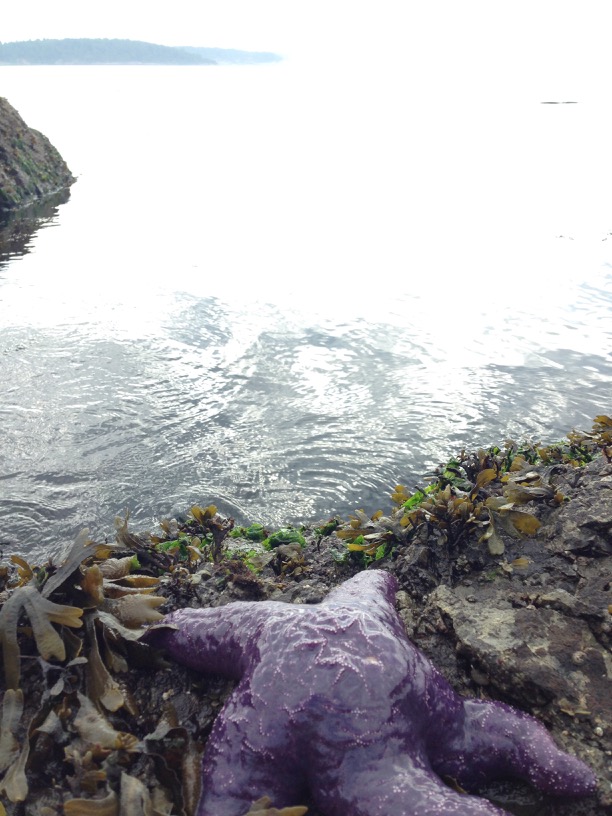climate
Friday Harbor
12/05/16 12:47
Done teaching for the spring. Whew.
For the first time, however, I'm actually teaching in the summer. I've done a Maymester course with Jim Hamrick for OTS, but generally I use the summer for research, travel, R&R, writing proposals. This year I'm delighted to be an instructor at Friday Harbor marine lab, one of the most amazing places in the world to be a biologist and interact with other amazing biologists.
One of the few downsides, however, is that to do research there - the exact projects we have proposed - means getting our act together ahead of time, knowing exactly what we need and when we need it. A lot of equipment and supplies are already at FHL, but that doesn't mean they are laying dormant waiting for us. Cooperating with the whole crew at Friday Harbor is, of course, part of the experience of getting research done close to the field (unless you are lucky enough to live there!).
So, this month is a good time for me to be in the lab. All the undergrads are gone, and as it turns out after 20 years I'm pretty good at rocking out a PCR here, a gel there, organizing equipment and supplies, and thinking of how amazing it will be when I'm there.
For the first time, however, I'm actually teaching in the summer. I've done a Maymester course with Jim Hamrick for OTS, but generally I use the summer for research, travel, R&R, writing proposals. This year I'm delighted to be an instructor at Friday Harbor marine lab, one of the most amazing places in the world to be a biologist and interact with other amazing biologists.
One of the few downsides, however, is that to do research there - the exact projects we have proposed - means getting our act together ahead of time, knowing exactly what we need and when we need it. A lot of equipment and supplies are already at FHL, but that doesn't mean they are laying dormant waiting for us. Cooperating with the whole crew at Friday Harbor is, of course, part of the experience of getting research done close to the field (unless you are lucky enough to live there!).
So, this month is a good time for me to be in the lab. All the undergrads are gone, and as it turns out after 20 years I'm pretty good at rocking out a PCR here, a gel there, organizing equipment and supplies, and thinking of how amazing it will be when I'm there.

Wiki This
30/08/12 09:05
I’m always surprised that there are people who read this lab website blog. You really surely have better things to do with your time! But if you’re here, I’m going to point you to another website that you may find interesting. This semester I’m teaching Honors Evolution, a one-hour class each week that complements the big lecture class. The big class has 200 students, making personal interactions and discussions very difficult; the small class has 14, and I’m using it to experiment with how wikis can allow students to organize what they learn and even push the direction of a course to suit their interests.
Basically, the topic of the Honors course is how evolution intersects with climate change in marine populations. Will it ameliorate the effects of climate change by allowing populations to adapt to a shifting environment? Will only some species be able to adapt? Nobody really knows for sure, and there still hasn’t been much done on this topic in the literature. But my students’ job is to surf this literature and discuss it, synthesizing what they find on the wiki. This means that they work together, their grade is essentially based on participation and interaction, and at the end we might actually have an interesting, useful resource for learning more about evolution and climate change.
Anyway, this is all explained better on the site itself. It is a wiki, but only members of the class can contribute, so it is not an open community like Wikipedia. Nevertheless if you find it interesting there are places to comment, and I’m hoping this will be a fun thing to do this semester.
Basically, the topic of the Honors course is how evolution intersects with climate change in marine populations. Will it ameliorate the effects of climate change by allowing populations to adapt to a shifting environment? Will only some species be able to adapt? Nobody really knows for sure, and there still hasn’t been much done on this topic in the literature. But my students’ job is to surf this literature and discuss it, synthesizing what they find on the wiki. This means that they work together, their grade is essentially based on participation and interaction, and at the end we might actually have an interesting, useful resource for learning more about evolution and climate change.
Anyway, this is all explained better on the site itself. It is a wiki, but only members of the class can contribute, so it is not an open community like Wikipedia. Nevertheless if you find it interesting there are places to comment, and I’m hoping this will be a fun thing to do this semester.